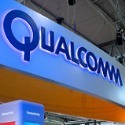A federal judge has ruled in favor of the FTC in its case claiming that Qualcomm harmed competition in two markets for modem chips through a combination of high royalty fees and predatory licensing practices.

On its website, Qualcomm says we're in the "Age of Invention." Now it may be forced to reinvent its business as a federal judge has ruled that Qualcomm violated antitrust law with its patent-licensing practices and the fees it charges cellphone makers.
The Federal Trade Commission began investigating Qualcomm in 2014 and, governments in Asia and Europe have been investigating the company since around 2009, according to court documents. The FTC, in 2017, sued Qualcomm and, late yesterday, US District Judge Lucy Koh in San Jose made her ruling in the case public.
Koh found that Qualcomm is harming the market because it charges exorbitant royalties for its patents and pressures cellphone makers to buy all of its chips from Qualcomm, thus eliminating competition.
In the court documents, Qualcomm's dealings with Samsung were called out as an example its tough tactics in action.
"Qualcomm has engaged in anticompetitive conduct toward Samsung by threatening Samsung's chip supply, reducing the royalty rate if Samsung purchased at least 85% of its chipsets from Qualcomm, delaying the delivery of software, threatening to withhold technical support, offering Samsung chip incentive funds if Samsung purchased 100% of its premium chips from Qualcomm, and paying to extinguish Samsung's antitrust claims and to silence Samsung," the court filings state.
Qualcomm, of course, denies the FTC's accusations and says it will keep fighting. "We strongly disagree with the judge's conclusions, her interpretation of the facts and her application of the law," said Don Rosenberg, executive vice president and general counsel of Qualcomm, in a statement issued this morning.
Why this matters
Qualcomm is the market leader in supply chips to smartphones and it looks to continue that dominance in the market for 5G phones and other devices. Judge Koh's ruling might force Qualcomm to give up some royalties and prevent it from only selling chips to companies that are willing to license a whole group of its cellular technology patents. That could help competitors, but not in the 5G market, where even Intel didn't want to compete.
While Qualcomm makes more revenue from its chip sales, its patent licensing business is more profitable -- and that's been under threat since Apple and others have refused to play ball. Qualcomm shares are down $8.10 (10.41%) to $69.65 in late morning trading on Wednesday.
Related posts:
— Phil Harvey, US Bureau Chief, Light Reading
About the Author(s)
You May Also Like











